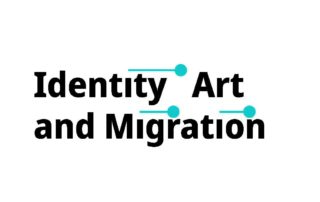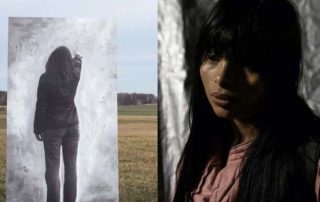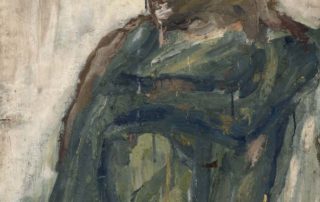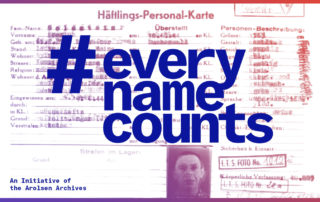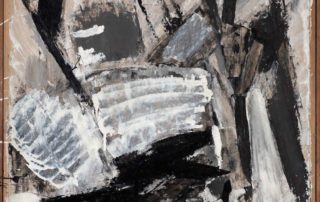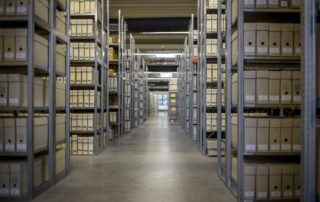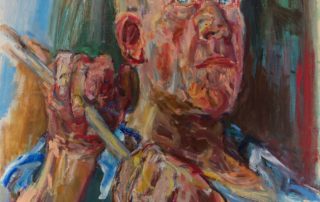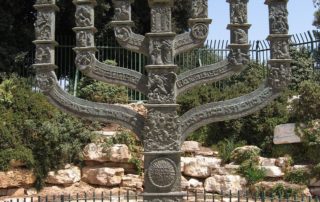Rachel Stern2021-11-28T14:47:24-05:00October 12th, 2021|Newsletter|
Dear Friends, During the first half of the 20th century, the numbers of people migrating were second only to today. What do we know about their experiences? How do artists, with their particular set of sensibilities respond to their own migration? Today, we are proud to announce the virtual project “Identity, Art and Migration” which investigates US immigration of European refugees during the first half of the 20th century through the lens of seven artist case studies: Anni Albers, Friedel Dzubas, Eva Hesse, Rudi Lesser, Lily Renée, Arthur Szyk and Fritz Ascher. In the upcoming weeks, we discuss the seven artists featured in this project, and introduce and discuss interdisciplinary scholarship about “Identity” and “Migration” in two [...]
Rachel Stern2021-09-14T14:51:17-04:00August 26th, 2021|Newsletter|
Dear Friends, As the Jewish year comes to a close, we thank you from the bottom of our hearts for your interest in our work, and for your support. We are grateful to each one of you for being part of our community. So now we need your help. Please support our work with a donation. For specific sponsorship opportunities please contact me directly at stern@fritzaschersociety.org. DONATE HERE With your donation, you will make sure that artists, whose voice Hitler tried to erase, are acknowledged and remembered. Their artwork is thought about and discussed in its historical context. You’ll help educate about the Holocaust, raise the sensitivity towards contemporary challenges and empower [...]
Rachel Stern2021-09-14T07:20:52-04:00July 6th, 2021|Newsletter|
Dear Friends, We invite you to join us TOMORROW: Wednesday, July 7 at 12:00pm EST “Becoming Gustav Metzger: Uncovering the Early Years (1945-1959)” Featuring Nicola Baird Curator at Ben Uri Gallery and Museum, London (UK) Moderator Rachel Stern Director and CEO, The Fritz Ascher Society for Persecuted, Ostracized and Banned Art ZOOM REGISTRATION Gustav Metzger, Antwerp Model, 1949; Oil on canvas. Courtesy of The Gustav Metzger Foundation, image copyright Justin Piperger. Born in Germany to Polish-Jewish orthodox parents in 1926, Gustav Metzger (1926-2017) was one of 10,000 Jewish children evacuated in 1939 to London as part of the Kindertransport. His parents, eldest brother, and maternal grandparents, all perished in [...]
Rachel Stern2022-02-18T06:42:00-05:00May 11th, 2021|Events, Past Events|
Join the Fort Tryon Jewish Center (FTJC) and the Fritz Ascher Society for a LIVE DATA ENTRY EVENT to help build the world’s largest digital monument to victims of the Holocaust: the Arolsen Archives’ #everynamecounts. THIS EVENT WAS NOT RECORDED. Opening Remarks Rabbi Guy Austrian Fort Tryon Jewish Center in New York Rachel Stern Director and CEO of the Fritz Ascher Society in New York Introduction and Moderation Elizabeth Berkowitz Digital Interpretation Manager of the Fritz Ascher Society in New York #everynamecounts is a crowd-sourced data entry initiative to return the names of Holocaust victims, their families, and details of their lives into the findable, keyword-searchable public record. Participants enter information about Nazi victims and family members from digitized [...]
Rachel Stern2022-02-18T05:30:25-05:00April 25th, 2021|Events, Lectures, Past Events|
Lecture by Nicola Baird Research Officer and Curator at Ben Uri Gallery and Museum, London Introduced by Rachel Stern Director and CEO of the Fritz Ascher Society in New York Born in Germany to Polish-Jewish orthodox parents in 1926, Gustav Metzger (1926-2017) was one of 10,000 Jewish children evacuated in 1939 to London as part of the Kindertransport. His parents, eldest brother, and maternal grandparents, all perished in the Holocaust. Upon the advice of Henry Moore, Metzger spent six months at the Cambridge School of Art, before enrolling at the Sir John Cass Institute in 1946, where he studied sculpture and attended David Bomberg’s life drawing classes at the Borough Polytechnic, alongside contemporaries [...]
Rachel Stern2022-02-18T06:37:23-05:00March 4th, 2021|Events, Past Events|
The International Tracing Service (ITS), since 2019 called Arolsen Archives, was established by the Allies in 1948 as a central search and information center. They house the world’s most extensive collection of documents about the victims of National Socialist persecution, including documents from Nazi concentration camps, ghettoes and penal institutions, documents about forced laborers, and documents from the early post-war period about Displaced Persons, mainly Holocaust survivors, former concentration camp prisoners, and forced laborers. People who had fled the sphere of influence of the Soviet Union for political reasons are also included. The archive's holdings consist of 30 million documents in total and belong to UNESCO’s Memory of the World. At this event, Floriane Azoulay (Director) and Giora Zwilling (Deputy [...]
Rachel Stern2022-02-18T06:04:58-05:00March 3rd, 2021|Events, Lectures, Past Events|
The Austrian artist Oskar Kokoschka (1886-1980) achieved world fame with his intense expressionistic portraits and landscapes. Rüdiger Görner, author of the first English-language biography, depicts the artist in all his fascinating and contradictory complexity. He traces Kokoschka’s path from bête noire of the bourgeoisie and a so-called ‘hunger artist’ to a wealthy and cosmopolitan political and critical artist who played a major role in shaping the European art scene of the twentieth century and whose relevance is undiminished to this day. In 1934, Kokoschka left Austria for Prague, and in 1938, when the Czechs began to mobilize for the expected invasion by the German Wehrmacht, Kokoschka fled to the United Kingdom, where he remained during the war. Although he [...]
Rachel Stern2022-02-18T07:06:06-05:00February 22nd, 2021|Events, Lectures, Past Events|
Born 1877 in Dortmund, the sculptor Benno Elkan (1877-1960) first studied painting in Munich and Karlsruhe. At the end of his studies, he turned to sculpture. As a young artist, he spent time in Paris, Rome, and Frankfurt. Elkan’s oeuvre was largely made up of commissions. In the beginning, he mainly created tombs. Medals, portrait busts of well-known personalities, monuments to victims and candelabras follow, partly for the religious (Jewish and Christian) context. Elkan fled persecution by the German Nazi regime to Great Britain in 1934and lived with his family in London until the end of his life. Perhaps the most important work besides the Menorah in Jerusalem (1956) was never built: Memorial to the Defenseless Victims of the Bombing [...]


